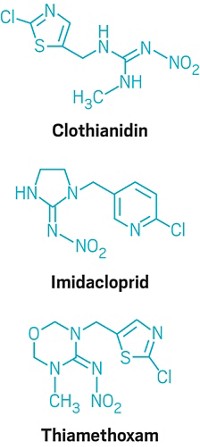Advertisement
Grab your lab coat. Let's get started
Welcome!
Welcome!
Create an account below to get 6 C&EN articles per month, receive newsletters and more - all free.
It seems this is your first time logging in online. Please enter the following information to continue.
As an ACS member you automatically get access to this site. All we need is few more details to create your reading experience.
Not you? Sign in with a different account.
Not you? Sign in with a different account.
ERROR 1
ERROR 1
ERROR 2
ERROR 2
ERROR 2
ERROR 2
ERROR 2
Password and Confirm password must match.
If you have an ACS member number, please enter it here so we can link this account to your membership. (optional)
ERROR 2
ACS values your privacy. By submitting your information, you are gaining access to C&EN and subscribing to our weekly newsletter. We use the information you provide to make your reading experience better, and we will never sell your data to third party members.
Environment
Endosulfan Banned Worldwide
Persistent Pollutants: Certain uses of pesticide will continue under exemptions
by Cheryl Hogue
April 29, 2011
The pesticide endosulfan will be banned in 2012 except for certain exempted uses, under an agreement struck April 29 by more than 170 countries. Endosulfan can cause neurological and reproductive problems in farmworkers and wildlife and can persist in the environment.
Countries made the deal under the Stockholm Convention, an international treaty for controlling persistent organic pollutants, after negotiating in Geneva April 25-29.
Currently, 80 countries have banned endosulfan or announced that they would phase out use of the chemical, according to Pesticide Action Network, a group that lobbies for alternatives to hazardous pesticides.
The U.S. is one of those countries, because the Environmental Protection Agency announced last year that domestic use of endosulfan would end by 2016. However, the U.S. is not a partner of the Stockholm Convention, though it participated in the negotiations in Geneva as an observer.
Under the new agreement, endosulfan may be used on certain combinations of crops and pests for six years. For example, endosulfan may continue to be used on cotton to control bollworms and on corn to control aphids and borers.





Join the conversation
Contact the reporter
Submit a Letter to the Editor for publication
Engage with us on Twitter